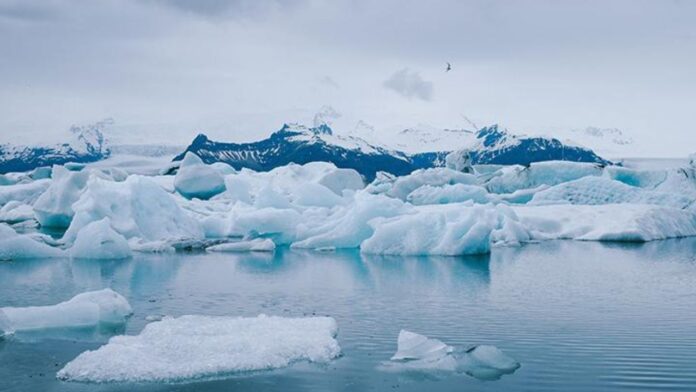Northern Europe dramatically cooled more than 8,000 years ago, as the planet warmed following the end of the last ice age. According to new research, Arctic ice melt has weakened a vital ocean current, leaving Europe in the cold, a result that has significant consequences for future climate change.
Temperatures in Europe and the North Atlantic are thought to have dropped by as much as 9 degrees Fahrenheit (5 degrees Celsius) over a 200-year period, causing more rain in Europe and drought in areas of Africa. The slowing of the conveyor-belt-like circulation that brings warm, tropical water north across the top of the Atlantic and cold, Arctic water south through the bottom was the source of this cooling.
The freezing of Arctic water drives this process. As seawater freezes, it expels its salt, making the surrounding waters saltier. The ocean conveyor belt is propelled by the thick, salty water sinking to the seafloor. A sudden surge of fresh water, however, disturbed this process 8,000 years ago. Previously, scientists thought the fresh water came from a huge lake in northern Canada that emptied into the ocean after an ice dam burst.
However, according to the latest study, much of the freshwater originated from the melting of an ice sheet. Scientists collected sand samples from the Scottish shore for the study, studying the fossilized remnants of sea creatures to extrapolate past sea level rise. They discovered that water levels climbed by about 6 feet (2 meters) over 200 years, which was too high for the lake outburst to explain.
“We have shown that, despite its size, the lake was not large enough to account for all of the water that went into the ocean and caused the sea-level rise that we observed,” said main author Graham Rush of the University of Leeds in a statement. He said that a substantial amount of water must have come from melting glaciers. The findings were reported in the journal Quaternary Science Advances.
The North Atlantic’s future is still the topic of heated scientific dispute. One recent study suggested that as temperatures rise and the Greenland ice sheet melts, the Atlantic current may cease to exist by the end of the century, albeit the conclusions were viewed with skepticism. The latest study adds to the evidence that current melting may cause a slowing of ocean currents.
Rush stated of the new study, “We have shown that rapid ice-sheet retreat, which may occur in Greenland depending on the path of future fossil fuel emissions, can cause a range of significant climatic effects that would have very worrying consequences.”



















![10 Countries With the Best Healthcare in the World [Statistical Analysis] Countries With the Best Healthcare in the World](https://articleify.com/wp-content/uploads/2025/07/Countries-With-the-Best-Healthcare-in-the-World-1-150x150.jpg)









